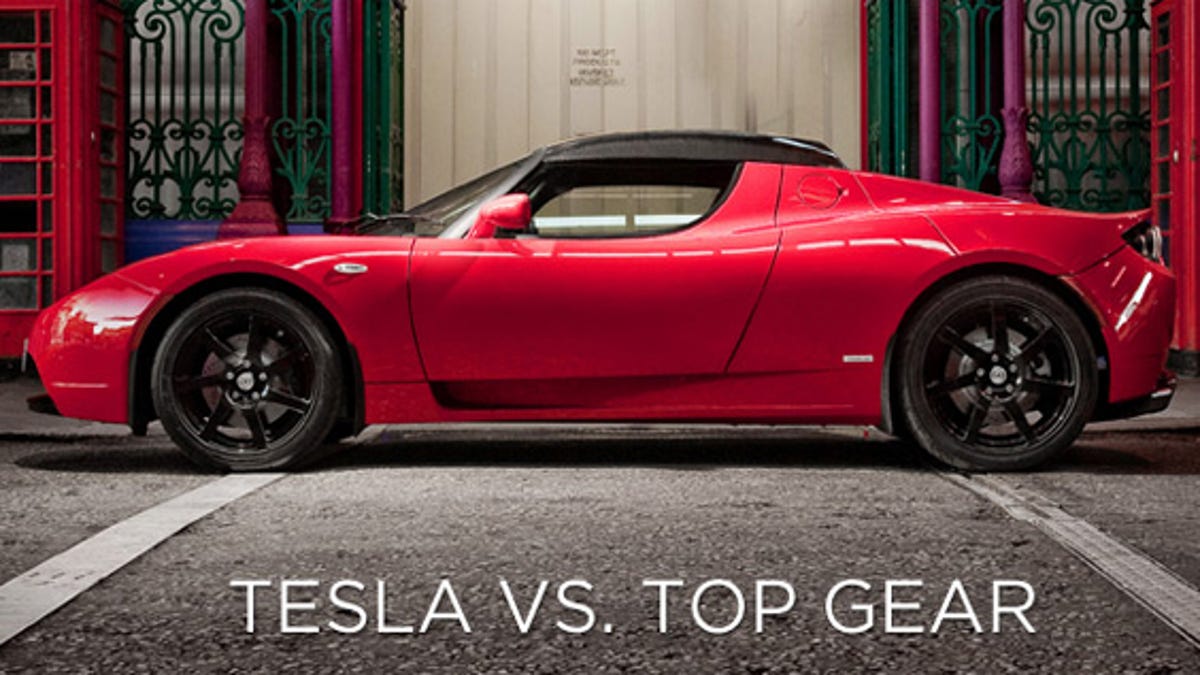Top Gear executive producer responds to Tesla lawsuit
Top Gear's executive producer Andy Wilman has put his side of the story after Tesla announced its intention to sue the BBC over claims the show made about its electric sports car.

We reported last week that Tesla was suing Top Gear over some claims the show made about the Roadster electric sports car in a scandal we're calling 'conkoutgate'. Now, in a very unusual move from the usually legally cautious BBC, executive producer Andy Wilman has posted an article on TopGear.com about the show's original review and the claim by Tesla.
Tesla is concerned about five points made in the Top Gear film. You can read more on its website, but in short, the company is hacked off that Top Gear claimed the range of the car was only 55 miles, that they claimed it was "immobilised" by an overheated motor and that the brakes broke. They're also annoyed that the production team were shown pushing the car, implying it had run out of charge when, in truth, it hadn't.
Wilman's response seems measured and persuasive to us, although whether our learned friends will agree is another matter. He says the 55-mile range mentioned was based on track use, which is indeed stated in the film, although it doesn't say it was calculated by Tesla's own engineers, as Wilman claims. The same goes for the overheated motor, which Clarkson is heard to say reduces the speed of the car but doesn't disable it completely.
On the subject of the broken brakes, the company says the problem was minor, and that the car was still driveable, but you'd need to apply more pressure to get them to work correctly. While that might be true, Wilman makes the point in his reply that if it happened to your car, you'd go and get it fixed. Which is almost certainly true.
There are also some arguments that Top Gear had pre-judged the car based on a script seen by a Tesla employee on the day. And indeed, the production had used the car previously and Clarkson had put his thoughts in a shooting script. Wilman rightly points out that this is how reviews work. Here at CNET UK, we review a lot of stuff and we agree that videos are much better when you've actually used the product you're talking about. We also pre-script them, so we don't look like incompetent fools on-camera.
We've driven a Tesla, and we can honestly say it's one of the most remarkable cars you can spend your money on. But Top Gear is pretty much bang on with both its positive and negative comments. The car is too expensive and its range, while generous for an electric car, is still likely to cause problems for some. On the flip side, the Roadster is a real laugh to drive. It's incredibly fast and will drop the jaw of anyone who sits in it.
No one has done more than Tesla to make electric cars zoom from boring to awesome in no time at all. And if money were no object, we'd buy a Roadster right now, because in the UK, 200 miles is more than enough for most return journeys.
So to legal laymen like us, it seems unlikely Tesla can win its case. The film strikes us as pretty fair, for the most part. The 'fake' bits are down to the way TV is produced and shot, and not the result of any obvious malice -- but previous libel defences have foundered on much less.
Tesla may not be worried about the result, but it's an expensive way to generate publicity. If we were judging this one, the next words out of our mouth would be, "Case dismissed." We're not certain whoever's under the powdered wig will see things our way, though.